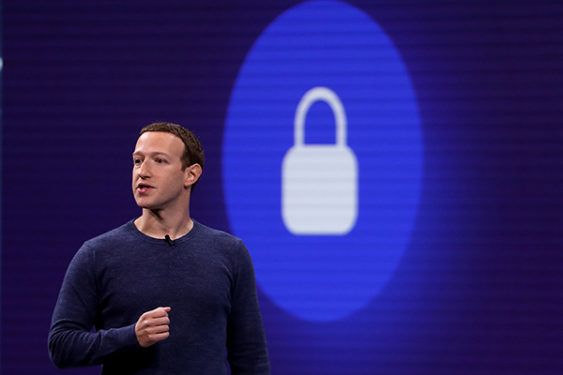
By Christopher White, The Tablet’s National Correspondent
NEW YORK — Facebook co-founder and CEO Mark Zuckerberg has come under fire after he publicly confirmed that the social media behemoth banned pro-life advertisements during Ireland’s abortion referendum in 2018 — a vote that led to the legalization of abortion in the traditionally Catholic country.
Zuckerberg’s comments came at the annual Aspen Ideas Festival in Colorado in June, where he detailed the internal deliberations that resulted in the controversial decision.
“During that election, leading up to that referendum, a bunch of pro- life American groups advertised… leading up to this Irish election, to try to influence public opinion there,” Zuckerberg told attendees at the high-end, invite-only event.
“And we went to the Irish, and asked folks there, ‘How do you want us to handle this? You have no laws on the books that are relevant for whether we should be allowing this kind of speech in your election, and really this doesn’t feel like the kind of thing that a private company should be making a decision on,’” he continued.
The social media mogul said Irish officials told him that the country had no law on the matter and it was up to Facebook to make a decision on whether to allow the ads — ultimately resulting in the company’s rejection of advertisements from pro-life groups.
The Irish referendum in May 2018 was one of the most closely monitored abortion votes to take place in the Western world in more than a decade. Long heralded by Catholics as a holdout against abortion in Europe, the country had previously voted to uphold some of the strongest protections for unborn children in the world.
More than 66 percent of Irish voters chose to repeal those protections. A proposal allowing for abortion during the first 12 weeks of a pregnancy and in later instances in certain cases was signed into law last December.
While Facebook’s actions during the Irish abortion referendum are now coming under scrutiny, media officials in the Diocese of Brooklyn said they have experienced similar acts of suppression.
Dustin Etheridge, manager of digital content production at DeSales Media Group said, “Our team has long suspected that content related to pro-life issues gets suppressed when posted to Facebook.
“Whether it’s a video that Currents News produces or an article that originates from The Tablet, at times the engagement on content related to pro-life issues is noticeably lower than engagement on other topics,” Etheridge said.
Joaquin Badajoz, deputy editor of the diocese’s Spanish language monthly newspaper Nuestra Voz, concurred, saying that Facebook denied efforts to allow the paper to pay to “boost” its content, which according to Badajoz, “is actually the best and maybe only way to increase the probabilities of reaching our natural audience.”
Badajoz said that such efforts are blocked under the auspices of an “ambiguous policy,” where Facebook flags such content as “political advertising.”
He lamented the policy as a form of censorship.
“We don’t run advertising, we just publish news, facts from a Catholic perspective,” Badajoz said. “And this is a very dangerous situation in terms of socio-political engineering, because we are allowing a private company, with a tremendous, massive impact globally to take and implement unilaterally personal decisions, at their own discretion, that has such a tremendous and lasting effect on public matters.
“They have become de facto makers of public policies,” he said.
In 2016, Pope Francis met with Zuckerberg during his visit to the Vatican, continuing a long-running tradition of the pope of meeting with leaders from the world of technology and communications. Following that meeting, then-papal spokesman Greg Burke told reporters that the two spoke about “how communications technology can be used to alleviate poverty, encourage a culture of encounter and help deliver a message of hope, especially to the most disadvantaged people.”
Facebook didn’t respond to The Tablet’s requests for comment.
